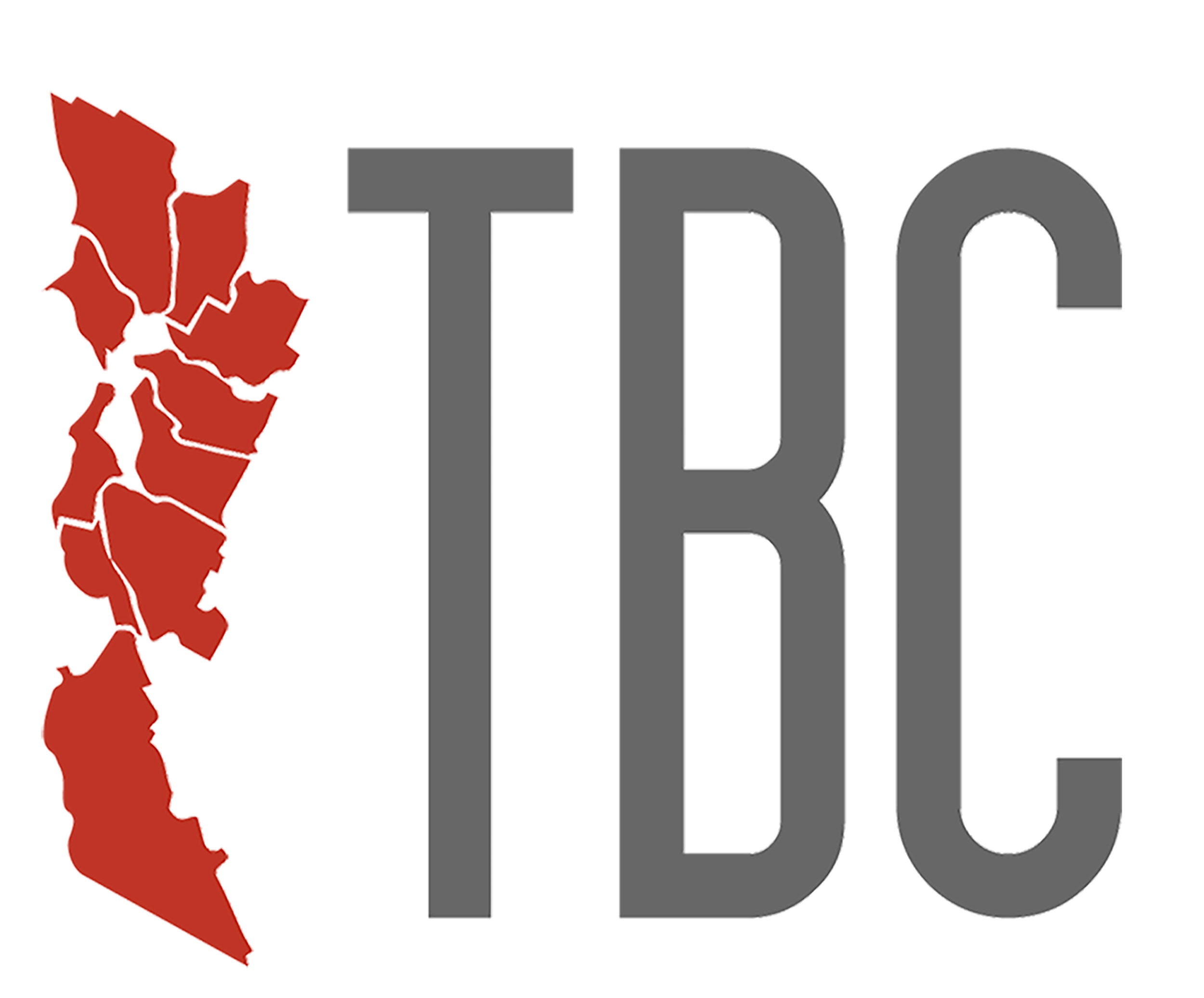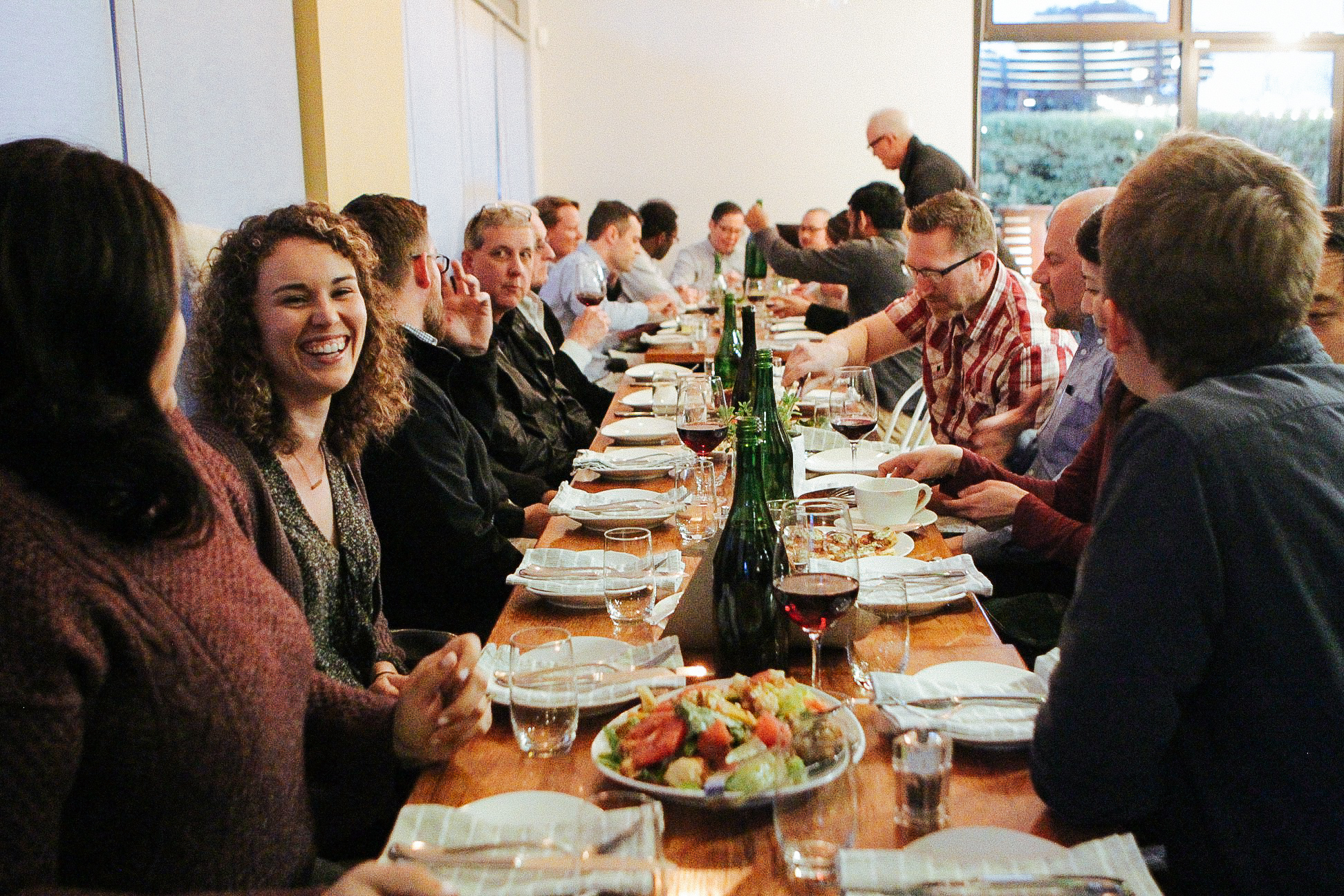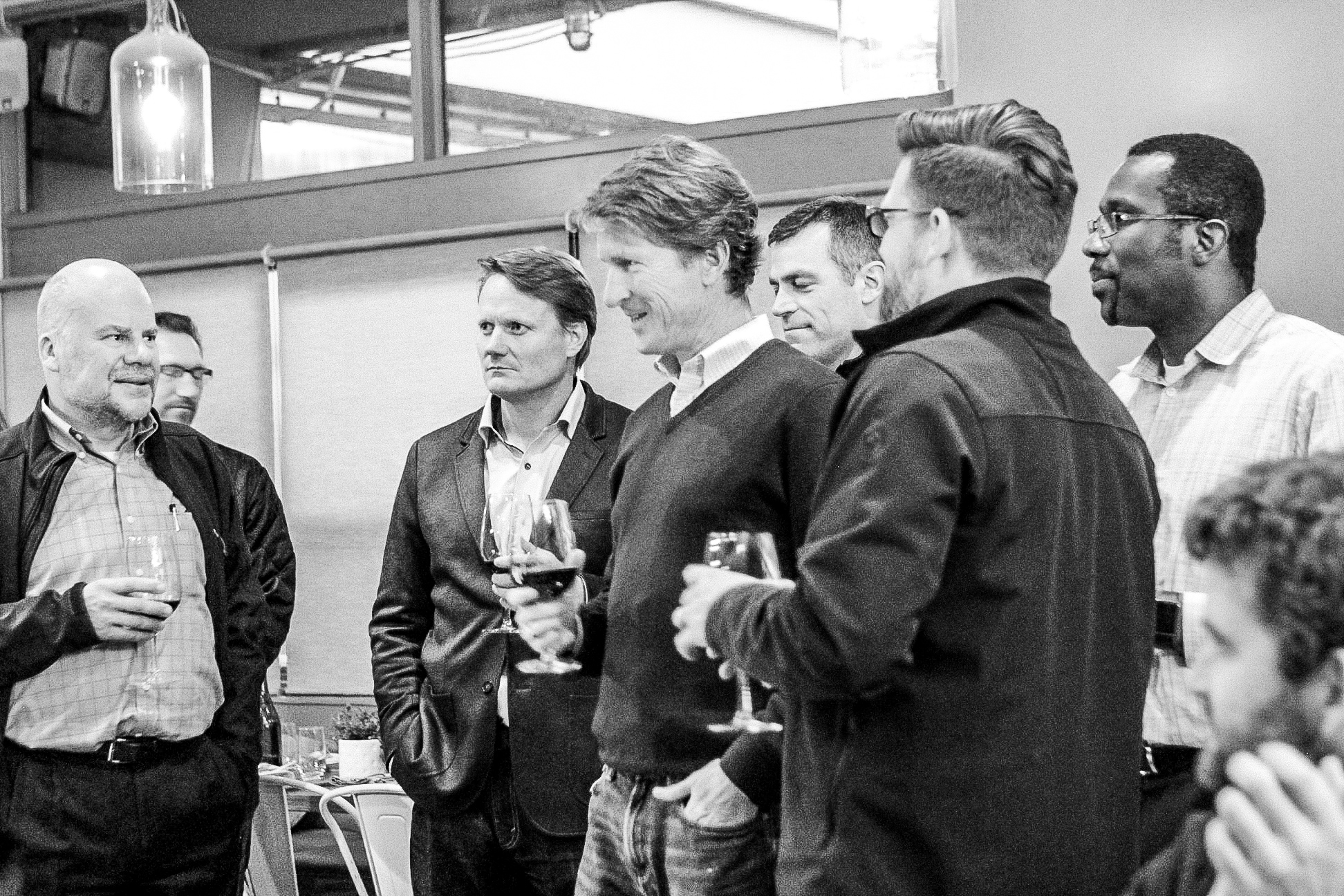VC Henry Kaestner - Living out your Faith in the Workplace
1 of 10 tips from Henry Kaestner for living out your faith:
focus on the kingdom first
This March, we joined Mark McGovern and Experience Church for our third Lifework DinnerTalk. We ate delicious food from Aracely Cafe, made new friends, and talked about what it means to be a Christian Marketplace Leader.
Work on the Altar of Heaven: Are you getting the answer right, but living it out wrong?
Stepping into the simple and warmly lit Aracely café, nearly 40 pastors and business leaders shook off the rain. Several immediately pulled out their phones and started searching for a connection. It seemed appropriate though that in this far corner of Treasure Island, in this place whose name means altar of heaven, that if you want to connect with God, the rest of the world needed to go silent.
Some had driven nearly two hours to hear Henry Kaestner, managing partner of Sovereign’s Capital. Wearing the ubiquitous VC uniform of a muted sweater and button up shirt over jeans, Henry did not endeavor to stand out. If anything, he hung back a little when introduced. Sitting on an industrial metal stool, he stated sincerely and humbly, “The most important thing in my life is faith. Work fuels the fire but is not as important as family. So, my priorities are faith, family, work, and fitness.”
Henry and his founding partner David Morken originally came to Silicon Valley to raise capital for a telecom startup. While they didn’t have a fish on their business cards, they made it clear to investors that they worked for the glory of God. They went 0 for 40. No one bit. It was later that Henry realized they weren’t seeking God, they were being willful. In the end their friends and family funded Bandwidth.com which went on to build one of the largest nationwide IP networks. If you’re making a call on Skype, chances are you’re doing it on the network Henry helped create.
Henry and his partner grew their success on the foundation of an intentional faith-based work culture, proving that Christian businesses can compete but finding that the VC business didn’t get that. This led Henry to start Sovereign’s Capital in 2012, a venture capital fund for Christian led businesses. Henry shared, “The worst part is saying no to 99.99% of companies which is why we then started faithdrivenentrepreneur.org to encourage faith driven enterprises, not just in tech but for anyone looking to create jobs, love on customers, and build community.”
Henry has observed through his investments in faith driven entrepreneurs that when asked if success is critical to salvation, all would get the answer right and say no, but they would live it out wrong. 34 out of the 36 entrepreneurs he has invested in have high levels of anxiety, much more than most Christians. Grace was lost on them.
“It’s a problem of identity. You get caught up in the narrative of the world when you have success. Your identity turns from Christian to successful tech founder, lawyer, fill in the blank. No one continues to grow 20% month over month.
We help them to understand there is a God who loves them, who doesn’t need their money, who just needs their hearts. It is hard to get them to understand.”
Henry himself grappled with this. When his son Benjamin got sick for over a year, he was really thrown. During that time, Henry could not be more than two miles from his son’s school. “It was really depressing. I realized that my identity was based on being a successful entrepreneur and venture capitalist. It was a season that God loved on me as I struggled through it. It was one of the most spiritually rich times of my life though at the time I didn’t see it at all. A God who loves is all that matters. If we tap into that then we can respond by bringing all we are to the altar.”
******
10 Tips for Living it out Right
Focus on the Kingdom first (Matthew 6:33). Henry’s strategy to balancing life and work is to put God first. “It was hard to do but the decision was easy. Some people think they can focus on earthly success for this season in life, then can focus on heavenly success in the next season – this is dangerous. When you focus on success first you often fail, but when you focus on God’s Kingdom first, earthly success can often follow. This takes trust in God.”
Sabbath is a litmus test. Many entrepreneurs work 7 days a week, telling themselves that’s what it takes to succeed. This tempts you to think it’s all you. It leaves you hallow. An entrepreneur Henry knows confided, “I’m doing awesome because I started taking Sundays off.”
Commune regularly with the living God. “You may think of yourself as working for God but that fosters a performance mentality versus letting God work through us.” Staying connected with God through prayer, scripture, and fasting ensures the right mentality. Like anything else, it takes discipline to make time for God. Henry reads a chapter a day along with nine men who then group text each other. When driving the kids to school, 5 miles a day, 5 days a week, they listen to sermons. As a family they pray together daily.
Seek God in your decisions. “When making decisions you want to be intentional, seeking God’s wisdom through things like prayer, fasting, and the wisdom of others. Ask, ‘Lord is this a season when I need to do this? Help me understand how long this lasts.’ When we made mistakes, we were being willful instead of seeking God. There’s a difference between being willful and being faithful.”
Invite your spouse into it. Once Henry started telling his wife about his business, he found, “God can speak through her on something I was trying to figure out on my own.”
Meet regularly with people who hold you accountable. “There is something powerful about being in relationship with people like you, who are going through the same battles. Look for people with spiritual wisdom. Help each other be holy and to wrestle with blind spots. Ask each other questions like, ‘What does success look like for you?’” Taking inspiration from C.S. Lewis’ Inklings group, Henry meets on a Tuesday morning once a month, with others who will both criticize and encourage his work.
Partner with a believer. You want the best person for the job and sometimes an unbeliever looks like the best person at first. “As I read Hebrews, I became convicted that I needed to be equally yoked as I started the business. When starting a new business make it non-negotiable.” What if you are already in business with an unbeliever? As the Bible says about marriage, don’t divorce them, but pray for them.
Make your culture, goals and values public. “Our success came from these values - faith, family, work, and fitness. Business is all about acquiring and retaining customers, which is all about retaining your employees, because when you train them to retain customers you don’t want to lose them. A wife of one of our employees told me she loves this place because her husband gets home at reasonable time – she’ll never let her husband leave!” When you publicly say family is a value then it becomes hard not to let employees go home at 6. In Henry’s company, it’s considered a “fire-able offence” if you call or email while on vacation. Making it public makes you accountable.
Be salt and light at any level. When reaching out to others in your workplace, do so with gentleness and respect. “I know a lawyer who works for American Express. She found a couple Christians in the company and they started to pray every Wed at lunch. She got a little nervous and asked HR if this was ok. It ends up there is no law against this. She felt emboldened to put up signs. 130 joined. It got big enough that American Express noticed. They came and asked, ‘Will you serve as a focus group for how products fit for faith-based groups?’ If a mid-level legal in a large company can be salt and light, we all can.”
Serve sustainably. Be part of a church community and serve. Start by asking, “Where do I feel most alive with God?” Ask your senior pastor, “How can I serve here?” If the pastor understands how God is working in your life, they will foster that instead of just assigning you to serve where there is an urgent opening. This is the only way service is sustainable.
Before the DinnerTalk, Henry spoke to a small group of Bay Area Pastors in an effort to help to equip them in engaging their marketplace leaders. For a small glimpse of this GOLD session, watch the videos below!
Henry on Identity
Henry on Commissioning Marketplace Leaders
******
Quotes from guests
“This is really moving me. You said something powerful - ‘I want my employees to go home at 6.’ I wanted to stay later for my business, for myself, and for the optics of staying.” - Darren Allarde
“What he said was so powerful. It convicted me that my idol is being understood.” – Macie Peterson.
“Priorities was a big takeaway. Faith, family, work, and fitness. We don’t always arrange it that way.” – Rick Blanco
“So many nuggets!” – Sun Oh
“He has great perspective. A lot of us measure our success in terms of wealth. God doesn’t measure in terms of wealth. Can we be satisfied with enough?” - Lee Bartolomei
“The intersection between faith and work is so misunderstood. It’s a balance between doing well and making sure not to put too much emphasis on myself, to really give God the glory.” – Johnny Shiu





